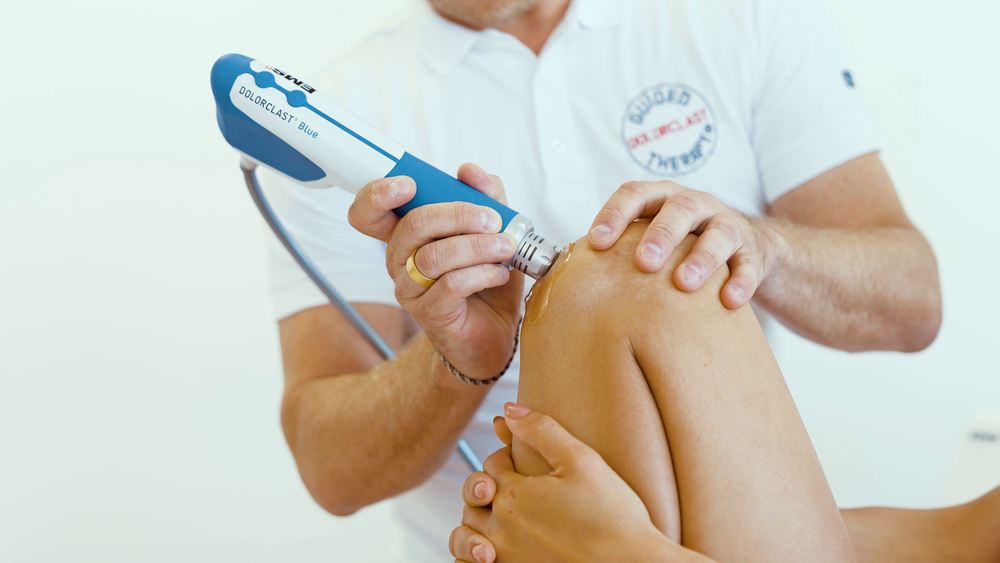Introduction
The shoulder is a remarkable joint, offering an incredible range of motion. However, this flexibility comes with a vulnerability, and one
common issue many individuals face is a rotator cuff injury. Whether you're an athlete, fitness enthusiast, or just dealing with the wear
and and tear of daily life, understanding the symptoms and rehabilitation options is crucial for a successful recovery.
Identifying the Signs
Recognizing the symptoms of a rotator cuff injury is crucial for early intervention. Individuals with a rotator cuff injury often experience persistent shoulder pain, which may radiate down the arm. This pain is typically exacerbated when lifting or reaching overhead. Weakness in the affected arm, especially when attempting to lift or carry objects, is a common indication. Another sign is a noticeable decrease in the range of motion, making simple tasks like combing hair or reaching for items on a high shelf challenging. If you find yourself struggling with these activities, it's essential to seek professional medical advice promptly. Early detection and intervention significantly contribute to a smoother and more effective rehabilitation process.
Mechanism of Injury
The rotator cuff is a group of muscles and tendons that surround the shoulder joint, providing stability and facilitating movement. Injuries often occur due to overuse, repetitive motions, or sudden trauma. Athletes involved in sports like cricket or tennis, where overhead motions are frequent, are particularly susceptible. Ageing also plays a role, as the tendons tend to degenerate over time, making them more prone to tears.
Diagnosis
Seeking professional medical advice is crucial for an accurate diagnosis. Physiotherapists are well equipped with a number of medical tools to accurately diagnose a rotator cuff injury and determine the best course of action. Other options include doctors who may use imaging tests such as MRI or ultrasound to visualize the extent of the injury.
Rehabilitation Options
Once diagnosed, rehabilitation becomes the key to restoring strength and function to the shoulder. Here are some effective options:

1.Physical Therapy
Engaging in a tailored physical therapy program is often the cornerstone of rotator cuff rehabilitation. Therapists work to improve range
of motion, strengthen surrounding muscles, and correct any movement patterns that may contribute to the injury. Regular follow ups ensure
correct continuation of the exercise programme, advancing exercises as required and ensuring a positive progress of the rehabilitation.
2. Rest and Ice
Adequate rest is essential for the healing process. Applying ice to the affected area can help reduce inflammation and alleviate pain. It's
important to strike a balance between rest and gentle movement to prevent stiffness.
3. Anti-Inflammatory Medications
Non-steroidal anti-inflammatory drugs (NSAIDs) can be helpful in managing pain and reducing inflammation. However, it's crucial to consult
with a healthcare professional before using any medication.
Conclusion
Recovering from a rotator cuff injury requires patience, dedication, and a comprehensive approach. The
key to recovery is to work closely with healthcare professionals to tailor a plan that suits your specific needs. With the right guidance
and commitment, you can overcome the challenges of a rotator cuff injury and regain strength and mobility in your shoulder,
returning to your favourite sport or day to day activities.

Blog
Nikos takes a look at how Extracorporeal Shockwave Therapy (ESWT) stands out as a revolutionary treatment and has transformed how Physiotherapists approach various musculoskeletal conditions.

Blog
Alex Ryan takes a look at the unsung hero that is sleep in this Blog. Sleep is a fundamental aspect of our well-being that significantly impacts recovery from injury and helps prevent future injuries

Are you ready to have a chat with our team to discover how we can help you achieve a better quality of health, fitness and well-being?
Book an appointment with our team and start the journey to creating the perfect treatment plan for your issue, your lifestyle and your
goals.